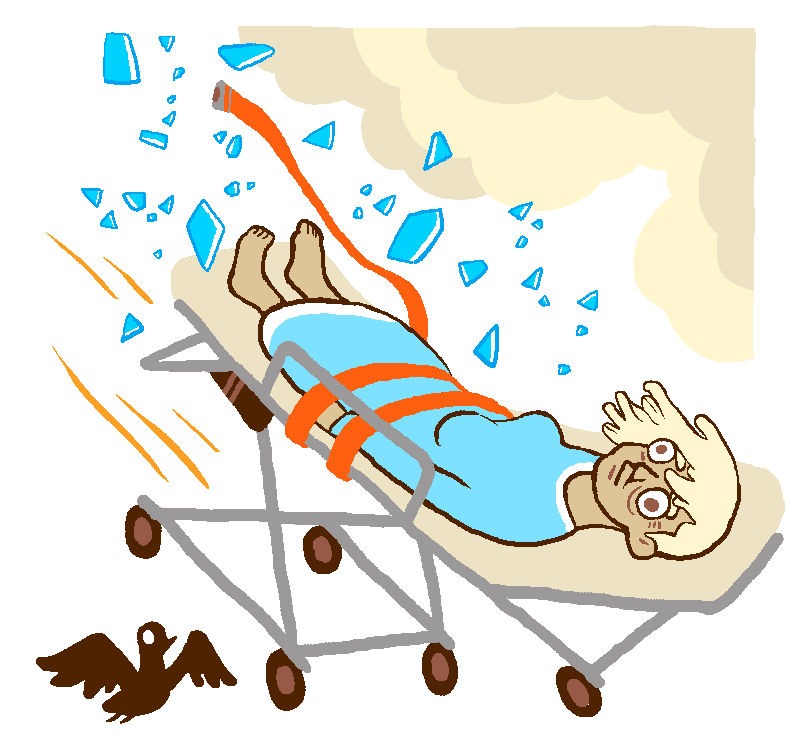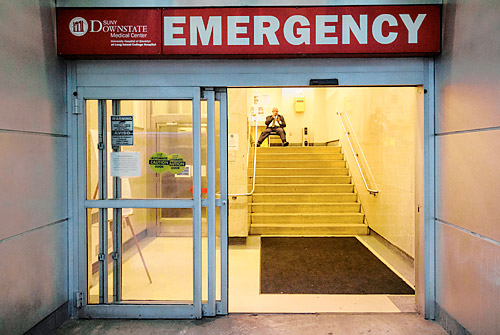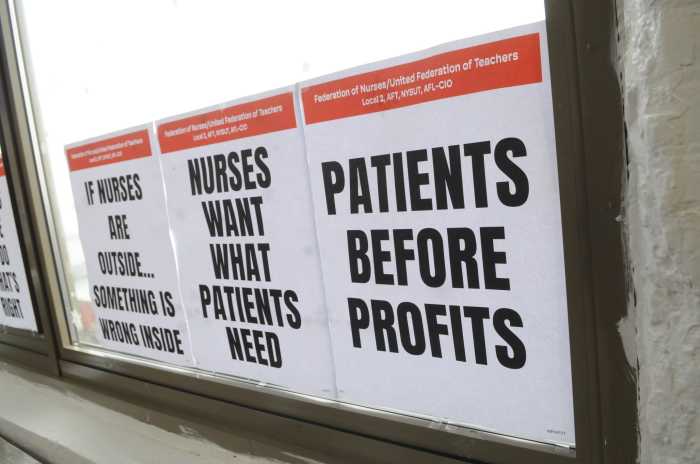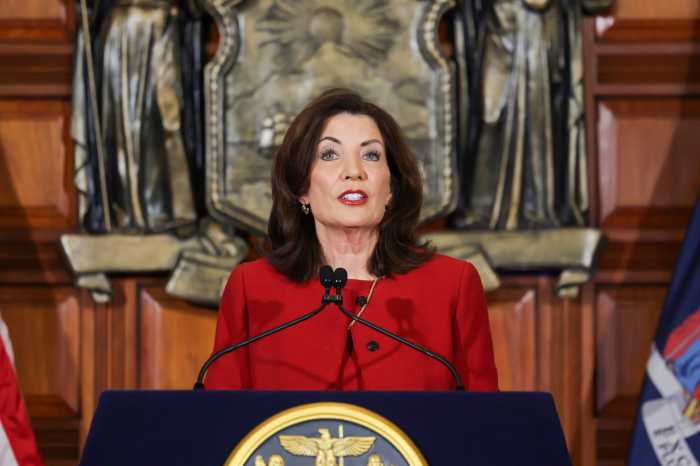Radioactive waste may be buried beneath Long Island College Hospital and its specter has already killed one deal to sell the shuttered medical center.
An environmental study done at the behest of luxury builder Peebles Corporation showed that radioactive waste from medical procedures may be lurking beneath the Cobble Hill medical campus valued at as much as $500 million along with a host of other nasty pollutants. State University of New York officials say they showed Peebles the door on Wednesday because it was demanding government help with a potential clean-up. Peebles honchos don’t deny the request but say their main concern was performing further environmental tests to determine if the prime purchase was damaged goods, as any buyer worth its salt would do.
“If you were making a deal, as a reasonable person, you would want to know what you’re getting into,” said a spokesman for Peebles.
The contaminant concerns came out of a cursory environmental review the developer commissioned that showed the site of the former hospital could be a biohazard in several ways, the most alarming being its potential radioactivity due to the hospital’s use of nuclear medicines, a category of procedures that include organ imaging and thyroid cancer treatment. The report also cites potentially leaky underground fuel storage tanks, possible mercury contamination, a coal boiler and storage bin that could be difficult to extract, asbestos and lead paint in the buildings, and what is left of a 2012 fuel spill.
Nuclear medicines came into widespread use in the early 1950s but New York did not sign up for federal regulations around their disposal until 1962.
Peebles had offered up a $26-million deposit and agreed to operate a freestanding emergency department for 20 years when it asked for the state to consider footing the cleanup bill should it exceed a certain amount, which state officials said was way beyond what it allowed for in its call for redevelopment proposals.
“Unfortunately, several portions of the Peebles proposal have dramatically changed,” said state spokesman David Doyle in a statement. “Peebles is seeking a cost-sharing agreement in which taxpayers would be partially responsible for environmental remediation, which is far outside the scope of the [Request For Proposals].”
The state’s solicitation does explicitly state that a prospective buyer would be on the hook for all cleanup costs.
“The [buyer] will be responsible for all required environmental remediation,” the document says.

Doyle also said that Peebles walked back on its promise to operate the emergency room at the former hospital. The hospital closed on May 22 after 156 years in operation and the company that had at first pledged to keep the department running even if the deal fell apart switched to saying it would not take the reins until the sale was finalized, according to the state.
“These deviations from the initial proposal are unacceptable to SUNY from both a health care and business perspective,” Doyle said.
Peebles’ forced exit follows the torpedoing of talks with Brooklyn Health Partners, the company that scored highest in a ranking of redevelopment proposals that was supposed to favor bids that called for a hospital at the site as part of a settlement in a lawsuit brought by community groups and unions to stop the state from shuttering the hospital. Peebles and Fortis came in second and third places, though neither plan included a hospital.
Fortis president Joel Kestenbaum gave Gov. Cuomo’s 2014 re-election campaign $5,000 last November, while his uncle Moshe — who is not a partner in the firm — gave $12,500 in Jan. 2014. Cuomo controls the State University of New York.
The state originally tapped Fortis to develop the land overlooking the New York Harbor without public input, but a judge ordered the state to throw out the deal and find a developer using the settlement-outlined scoring process.
Fortis’ plan calls for apartments, condos, and townhouses, a quarter of them below market-rate, as well as an amublatory surgery center and a cancer center.
Fortis has no problem paying to clean up nuclear waste or whatever else might be lurking beneath the shell of the former hospital.
“The request for proposal uses the words ‘as is’ and we plan to abide by the RFP,” a Fortis spokesman said.


























